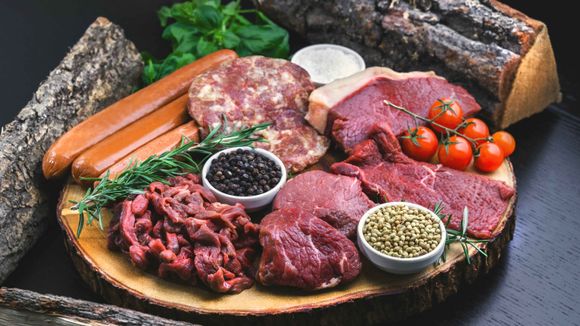Research data - what they say about plant nutrition
A large number of studies note that plant diet can bring many health benefits such as reducing the risk of chronic diseases - type 2 diabetes and heart disease. Two large studies of EPIC-Oxford [ [ref. 1] and Adventist Health Study-2 [ [ref. 2] – also suggest that the vegetarian or pescatarian diet (in which the only meat a person eats is fish or seafood) may be associated with a slightly lower overall risk of cancer.
However, a smaller number of studies have shown whether these diets can reduce the risk of developing specific types of cancer. To get one step closer to this information, the research team of Cody Watling, PhD, Department of Cancer Epidemiology; Aurora Perez-Cornago, senior nutrition epidemiologist, and Tim Key, professor of epidemiology - all from Oxford University - are conducting a new study.
"We found that eating less meat reduces the risk of developing cancer - even the most common cancers."
The study of the British scientists - what are the results
The team conducted a large-scale analysis of diet and cancer risk using data from the UK Biobank study (a database of detailed genetic and health information from nearly 500,000 British people). When participants were recruited between 2006 and 2010, they filled out questionnaires about their diet - including how often they ate foods such as meat and fish. The participants were then tracked by the research team for 11 years, using their medical records to understand how their health had changed during that time. [ [ref. 3] ]
The participants were then categorized into four groups depending on their diet. About 53 percent regularly consume meat which makes them carnivores (eat meat more than five times a week). Another 44% of participants were less carnivorous (eating meat five or fewer times a week). Just over 2 percent are pescetarians, while just under 2 percent of participants are classified as vegetarians. Vegans are part of the vegetarian group as there are not enough such participants to be studied separately.
The analyses have also been adjusted to ensure that other factors that may increase cancer risk - such as age, gender, smoking, alcohol consumption and socio-demographic status - are taken into account.
Compared to regular carnivores, scientists found that the risk of developing any type of cancer was 2 percent lower for those who ate less meat, 10 percent lower for pescetarians and 14 percent lower for vegetarians.
Specific cancer risk outcomes
This study also helps to establish how diet affects the risk of developing the three most common types of cancer seen in the UK. The team of scientists found that people who ate meat had a 9 percent lower risk of colorectal cancer compared to regular carnivores. Previous research has also shown that higher intake of processed meat in particular is associated with a higher risk of colorectal cancer.
They also found that vegetarians and pescetarians had a lower risk of colorectal cancer, but this was not statistically significant. And women who preferred a vegetarian diet had an 18 percent lower risk of postmenopausal breast cancer than usual carnivores. However, this relationship is largely due to the lower average body weight observed in vegetarian women.
Previous studies have shown that being overweight or obese after menopause increases the risk of breast cancer.
Pesquetarians and vegetarians also had a lower risk of prostate cancer (20% and 31% less, respectively) than regular carnivores.
Limitations of the study
Since this is an observational study (which means that only changes in the health of the participant are observed without making changes in diet), this means that we cannot know for sure whether the links that have been established are directly caused to the diet, or are due to other factors.
"Although we adjusted the results carefully to take into account other important causes of cancer, such as smoking and alcohol consumption, other factors may still have influenced the results we observed."
Another limitation of the study was that most of the participants (about 94 percent) were white people. This means that it is unclear whether the same relationship will be observed in other ethnic groups. It is also important that future studies look at a more diverse population, as well as a larger number of vegetarians, pesquetarians and vegans, to investigate whether this link between the lower risk of cancer and these types of diets is as strong as seen in this study. The groups of people studied also did not consume red and processed meat, which was associated with a higher risk of colorectal cancer.

Keep in mind that most evidence showing a link between a lower risk of cancer and a vegetarian or pesquetary diet also seems to suggest that greater consumption of vegetables, fruits and whole grains may explain the reduced risk.









